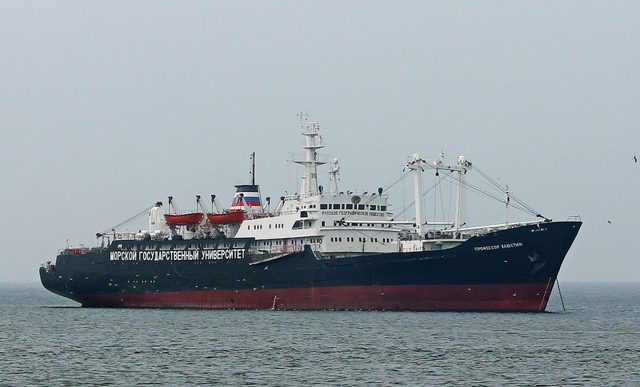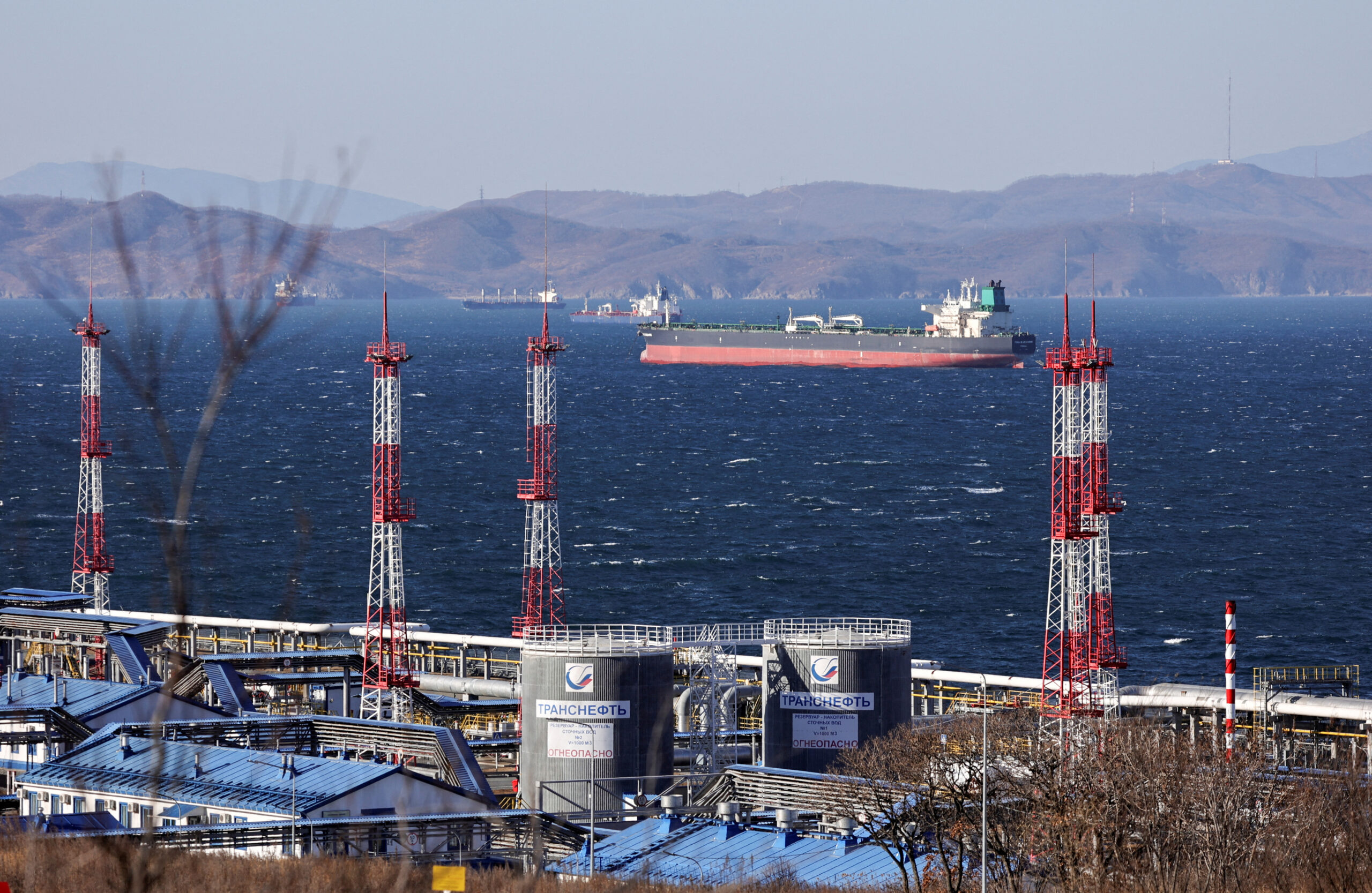
Russian Ship Departs Vladivostok to Study Deep Water Effects of Fukushima Incident
Image by RomanPlastun/fleetphoto.com
Today, September 25, Russia’s marine research ship “Professor Hlyustin” left the port of Vladivostok with a group of scientists and cadets on board who will study the radiation situation in the Sea of Japan to determine the consequences of the accident at the Fukushima nuclear power plant. The 28-day study will be conducted through the Sea of Japan and the Tsugaru Strait and on toward the Kamchatka region of the Pacific Ocean to a maximum depth of 6000 meters, according to the Russian Geographical Society.
During the expedition samples of water, air, soil, plants and marine life will be taken where they will be studied on board and and then sent on to the V. G. Khlopin Radium Institute in St. Petersburg where they will be further analyzed and tested for the presence of cesium-137, strontium-90 and other radionuclides.
“We know what happened at Fukushima,and we are exploring how the radionuclides are scattered over a large area as a result of a severe accident,” commented Stanislav Shabalev, Head of Laboratory at V. G. Khlopin Radium Institute.

Subscribe for Daily Maritime Insights
Sign up for gCaptain’s newsletter and never miss an update
— trusted by our 108,050 members

Get The Industry’s Go-To News
Subscribe to gCaptain Daily and stay informed with the latest global maritime and offshore news

 Join The Club
Join The Club









